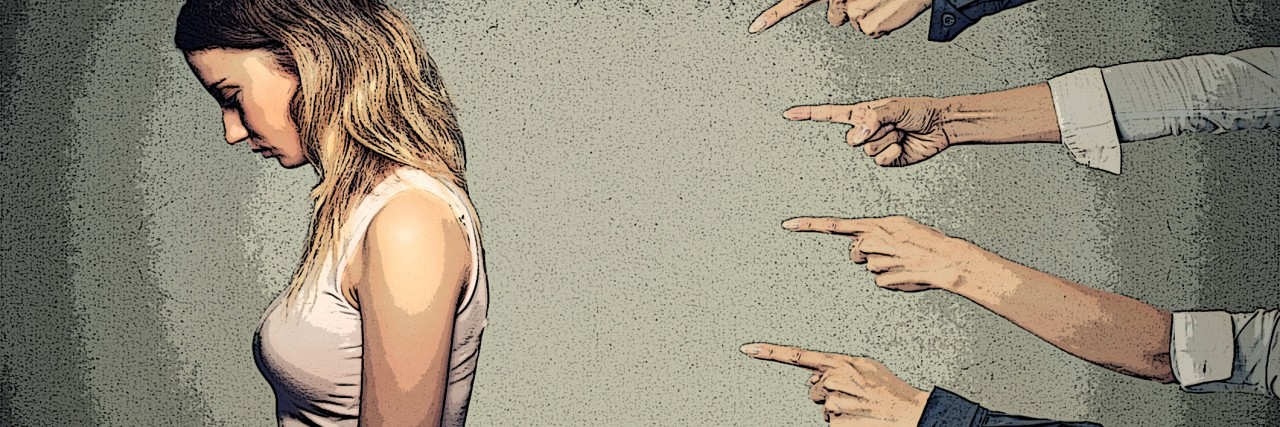Often when we think about disabled people, we believe they’re born that way. If we were born healthy, then we’re in the clear. This is completely untrue: about 20 percent of the world has a disability, but only around 3 percent of people were born with a birth defect. While people with disabilities may be the biggest minority, there is still so little awareness, leading to a lot of judgment.
I was born able-bodied, and never imagined I could ever be anything different. I had some issues, as we all do, but nothing a simple surgery and some recovery time wouldn’t fix. Around the age of 12, I realized things weren’t as they should be. By my final year of high school, I could no longer walk and needed a wheelchair. I remember the day I went with my parents to buy my wheelchair so clearly. We picked one out, and I went home and cried.
I’d always been an independent person, and wanted to take on the world by myself, but now I was at the point where I couldn’t even brush my own hair because my muscles were too weak and my joints were too sore. I didn’t cry because of my disorder. I cried because I’d lost my independence. More than that, I felt I wasn’t strong and ambitious anymore. I was someone people would pity and look down on. They’d see me and feel sorry for me. I told my parents I didn’t want to go to school anymore, because I was worried about what people would think.
The saddest part is that I was right. People would see me in my chair and look away because my disability made them uncomfortable. Others would stare, probably because they didn’t know how else to react. When other people would push my wheelchair, people would talk over me to the person assisting me, as if I didn’t exist. Others referred to me as “the wheelchair.” Regardless of how it manifested, people judged me. They were forming notions of who I was based purely on the fact that I needed a wheelchair.
After two years of intense physical therapy, I moved from being in a wheelchair, to walking on crutches, to walking by myself. However, being able to walk again didn’t stop the judgment. My joint hypermobility syndrome and fibromyalgia mean that I have intense joint and muscle pain, so I can’t walk for long or far distances. I’ve heard people say horrible things when they see my father carry me on his back up the dunes of the Namibian desert, or when my brother carried me on his shoulders through the parking lot to the car, or when my boyfriend carried me in his arms across the university campus. “Why is that girl taking advantage of him?”
They look at me with distaste when I sit in the corner of the store, not realizing I don’t have the strength to keep myself up anymore. It’s all I can do to stop myself from bursting into tears. The people in the restaurant at the table next to me make faces of disdain when they see me pull out the 8 tablets I have to take with every meal, not knowing I wouldn’t make it through the day without them. People see me get out of my car after parking in the disabled space and glare as if I’ve done something reprehensible, not realizing that had I parked anywhere else, I probably wouldn’t be able to get myself back to my car.
All I wanted was to be me — the person I was before I got sick. It’s so difficult to be that and do that when people treat you differently. To those of you who see someone with a disability, or someone doing something out of the ordinary: rather than judging, take some time out to ask. I’d be happy to tell you why I do what I do. I’m sure many others with illnesses or disabilities would also rather discuss the issue than deal with the judgment. By taking a second to think, you can avoid causing someone more pain than they may already going through. The removal of stigmas and unfair judgment goes a long way to making life with disabilities easier.
We want to hear your story. Become a Mighty contributor here.

